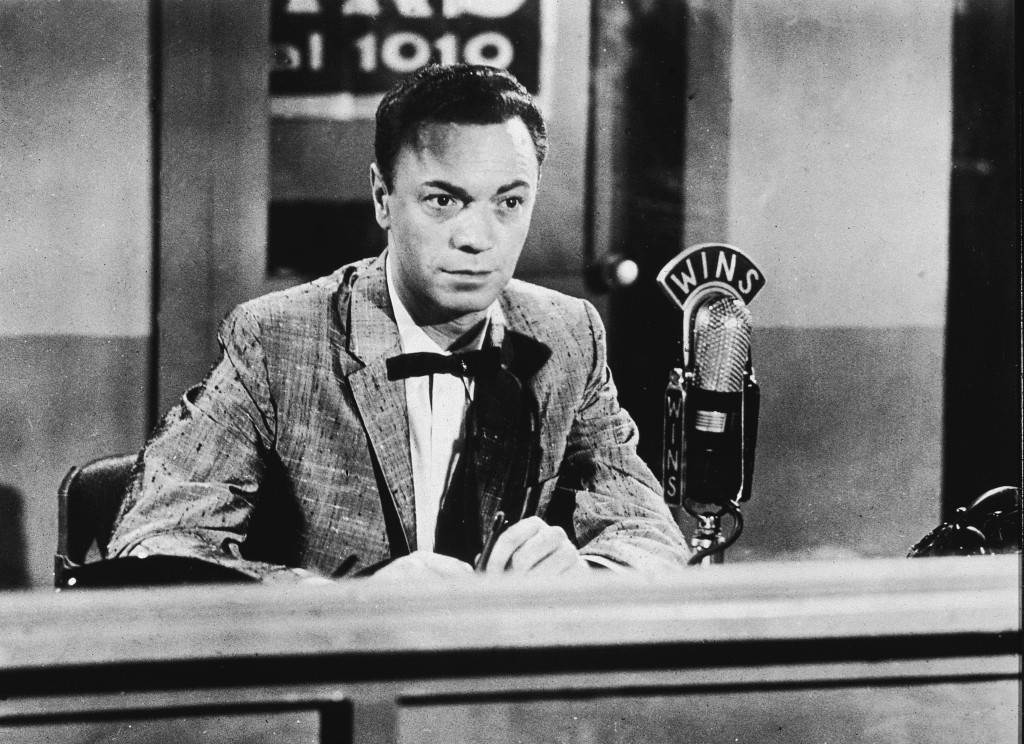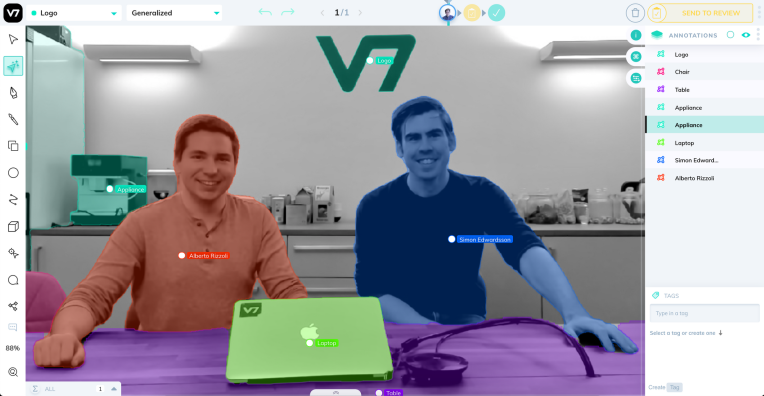It is difficult to say with absolute certainty, but music and radio might have turned out far differently had Alan Freed not been involved.
Born December 15, 1921 in Pennsylvania, Freed came of age when radio itself was in its infancy. In 1933, his parents moved to Ohio, and after high school he decided to attend college at Ohio State University. It was there that he began to develop an interest in radio.
Now keep in mind that early radio was essentially what we now consider Old Time Radio — dramas, comedy, soap operas, westerns … everything that would eventually work its way to television. Oh, and music … generally live bands playing performances at venues throughout New York and other big cities.
Freed was an early disc jockey from a time before the term was even invented. In the 1940s, he developed a popular show on WAKR/Akron that included a mix of songs from records, including jazz, blues, country, pop, and what would become known as rhythm and blues.
In 1951 he left WAKR, but due to a non-compete clause his options were limited. He ended up on the late-night shift of WJW/Cleveland. It is here where he developed his on-air style, a style that was different. Instead of being low-key and letting the music be the star, Freed was hip. Vibrant. Exciting. He wanted his audience to feel the music, to be part of the excitement.
Freed also broke some of the unspoken rules of radio, primarily by playing music performed by black artists rather than white covers of the songs. His music helped bring teens of different races together.
He also popularized the term rock and roll. He used it initially to describe the show, and it eventually took on the musical connotation. But he didn’t invent it: Rock and roll started as a slang term for sex.
But that probably added to the appeal of Freed and his show … and the music. His popularity caught the attention of WINS/New York, and soon Freed was playing rock and roll on the radio. Eventually, he found himself hosting a rock and roll television program.
Not that everything was perfect. Mixing races was not popular among some. And the music … well, the music was “an inciter of juvenile delinquency,” according to the New York Daily News. Parents, churches and civic leaders often called the music obscene.
His television program was even canceled after its second airing because ABC’s Southern affiliates didn’t like Frankie Lymon — lead singer of The Teenagers — dancing with a white girl. But Freed couldn’t be stopped. He soon found himself on WABC, one of New York’s most popular radio stations.
And then … payola.
Radio had gotten so big, so popular and so influential, that disc jockeys could make or break a record. Record companies started offering money and more for guaranteed plays of records. it wasn’t a big deal at first but after the quiz show scandals of the 1950s on television, the government started taking a closer look at the operations of radio.
Freed never admitted taking payola. And this column is too short to go into details about the practice. But the big targets were Freed and another popular DJ named Dick Clark. Freed refused to sign a statement for WABC denying that he took it, and he was fired. His last show was in November 1959.
Interestingly, payola was not illegal at the time; that wouldn’t happen until 1960. But like the quiz shows — which also broke no laws at the time — the negative publicity took its toll. Freed — the man who helped spawn a new generation of music and a new type of radio — could not get a job at any of the major radio stations, New York or elsewhere. One story, “The Dramatic Rise And Fall Of Alan Freed — ‘Father Of Rock And Roll’” written by Kara Goldfarb, mentioned that things were so bad, he “wound up working for a small scale radio station on the West Coast.”
That small-scale radio station on the West Coast? Our own KDAY (now KBLA, 1580 AM). Small. Daytime-only at the time. Though it did have Art Laboe and 50,000 watts, so it wasn’t all bad.
Freed was on KDAY for about a year. And we have proof … head over to Uncle Ricky’s Top-40 Radio Repository at www.reelradio.com and search for KDAY. There you can hear a very clean audio recording of Freed still playing the hits, still breaking new music, and still making his audience feel like they are an important part of the show.










